
Emu stands tall at detecting bacteria species
Rice computer scientists develop Emu, which uses long reads of genomes to identify bacteria in a community.

Emu stands tall at detecting bacteria species
Rice computer scientists develop Emu, which uses long reads of genomes to identify bacteria in a community.

Flooding exacerbates pollution exposure in at-risk urban communities
Increased flooding in the U.S. is exposing more people to industrial pollution, especially in racially marginalized urban communities, according to new research from Rice University, New York University and Brown University.

Landmark new engineering and science building on campus to bear Ralph S. O’Connor’s name
A self-made businessman who started out working in oilfields and ended up building an empire in energy and real estate investments will be memorialized at Rice University with a landmark new science and engineering building named in his honor.
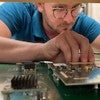
Rice physicists available to discuss Higgs boson 10th anniversary
Rice University physicists are available to discuss the July 4 anniversary of the Higgs boson discovery and the recent restart of the Large Hadron Collider (LHC) for a third round of experiments.

Blockchain tech can help small businesses launch and grow, says Baker Institute expert
Blockchain technology can give small businesses and entrepreneurs new avenues for funding their ventures and create opportunities for growth, according to a report from Rice University’s Baker Institute for Public Policy.

DOE backs Rice physicists’ collaboration
Rice nuclear physicists win a Department of Energy grant to research the fundamental properties of matter in extreme conditions.

Rice to open international campus in Paris
Rice University will expand global education and research opportunities for its students and faculty with the opening of the Rice University Paris Center, which holds its ceremonial launch this week.

US needs more foreign workers to solve labor crisis, says Baker Institute expert
Allowing more legal immigration and creating a workable solution for the millions of people living in the United States illegally is the only way to effectively address the nation’s worsening labor shortage, according to a report from Rice University’s Baker Institute for Public Policy.
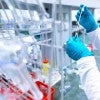
Two experts from the Baker Institute for Public Policy’s Center for Health and Biosciences at Rice University are available to explain the regulatory landscape of human embryo and embryoid research, especially in light of changes to federal policy after Roe v. Wade was overturned.
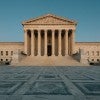
Rice experts available to discuss Supreme Court decision overturning Roe v. Wade
After the U.S. Supreme Court’s decision overturning Roe v. Wade’s federal abortion protections, Rice University experts are available to discuss what comes next.
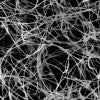
Boron nitride nanotube fibers get real
Rice scientists create the first boron nitride nanotube fibers using the custom wet-spinning process they developed to make carbon nanotube fibers.

Process to customize molecules does double duty
Chemists develop a method to add two fragments to an alkene molecule in a single process, which could simplify drug and materials design.

City, county and port support Galveston Bay Park study
Houston, Harris County, Port Houston and entrepreneur Joe Swinbank have chipped in for an engineering study of Galveston Bay Park, a chain of man-made islands that Rice University experts have proposed building as both a hurricane barrier and a 10,000-acre public park.

Houston’s hot housing market has decreased inventory and widened affordability gap
Houston’s housing market is hotter than ever, people are paying skyrocketing prices for a declining inventory of homes and apartments and the affordability gap is getting worse, according to a new report from Rice University’s Kinder Institute for Urban Research.
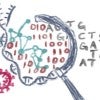
SeqScreen can reveal ‘concerning’ DNA
Rice computer scientists and collaborators develop a program to screen short DNA sequences, whether synthetic or natural, to determine their toxicity.